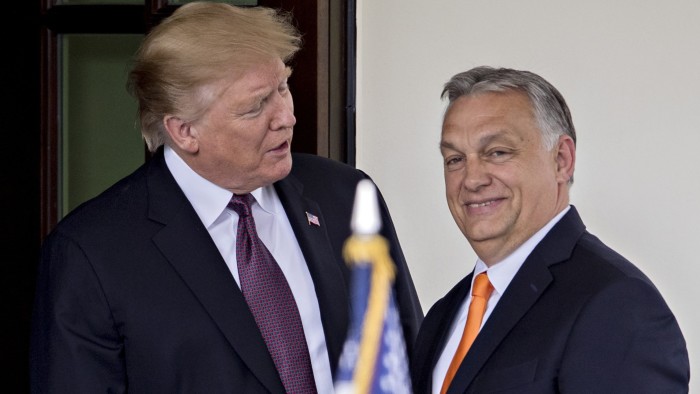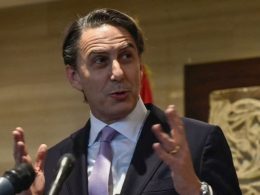Unlock the White House Watch newsletter for free
Your guide to what the 2024 US election means for Washington and the world
The writer is senior fellow at Carnegie Europe and author of ‘Turkey Under Erdoğan’
Donald Trump’s comeback might be causing shockwaves across Europe, but there is no shortage of cheerleaders either.
Look no further than Hungary’s Viktor Orbán. Had Kamala Harris won, the high priest of Trumpism on this side of the Atlantic would have been on the backfoot. But with Maga triumphant, Orbán is positioning himself as the bridge between the Europeans and the incoming US administration. Days after the election, he basked in glory at a gathering of the European Political Community in Budapest. We might soon see the Hungarian prime minister shuttling to Moscow and Kyiv as part of Trump’s attempt to freeze the war.
Orbán’s significance lies in the fact that he is the central node of a political ecosystem straddling the EU and its periphery. Much ink has been spilled on his influence on illiberal populists in other member states. However, he is even more consequential beyond the bloc’s borders. Hungary is an ally of choice for countries like Serbia or Georgia, which have experienced serious democratic backsliding but still pursue, at least nominally, EU membership. Orbán makes a vigorous case for enlargement while shielding from sanctions governments transgressing the EU’s democratic standards. He hailed the Russia-friendly Georgian Dream’s victory in the recent election that was tainted by alleged manipulations.
These governments are now relishing the prospect of Trump as a super-Orbán across the pond. The expectation is that the US will change gears from a rule-of-law agenda to the pursuit of deals. Eastern European elites will curry favour with the White House by offering business opportunities and political concessions benefitting Trump and his circle.
Trump’s first term has already laid the groundwork. Richard Grenell, former US ambassador to Germany and acting director of National Intelligence, pushed a controversial plan in 2020 to partition Kosovo between Belgrade and Pristina. He has remained close to both Trump and Serbian president Aleksandar Vučić. Vučić has himself facilitated a lucrative real estate deal in Belgrade involving Grenell and Jared Kushner, Trump’s son-in-law and former senior adviser. North Macedonia’s government looks with hope at Chris Pavlovski, a Macedonian-Canadian tech entrepreneur and business partner of both Trump and vice president-elect JD Vance. The widespread assumption is that personal-cum-business ties will shape US policy under Trump 2.0.
The shift will be felt across Europe’s fringes, from Tirana to Tbilisi. The US might continue to rhetorically support EU expansion. In some cases, it will frame it as an alternative to Nato, which commits America to defend far-flung countries against Russia. But in practice, Trump will reinforce illiberal tendencies across the region put on display by Orbán’s governance model rooted in state capture.
Worse, the US could become a separate pole in a multipolar EU periphery. Serbia, Georgia and perhaps North Macedonia have calculated that membership of the bloc is at best a distant prospect and that there is no need to comply with Brussels in the meantime. Much like Orbán, Vučić and Georgian Dream’s Bidzina Ivanishvili have hedged their bets and cultivate ties with Russia, China, Turkey and other non-western players. A US which looks at the EU through an adversarial prism would add to the menu for choice. One can extract a better deal from Brussels — or Paris and Berlin for that matter — if there is sufficient geopolitical wiggle room.
Much like Orbán, eastern European neighbours will be paying lip service to the EU. But they will not shrink from playing the Trump card if given the opportunity either.
Source link









